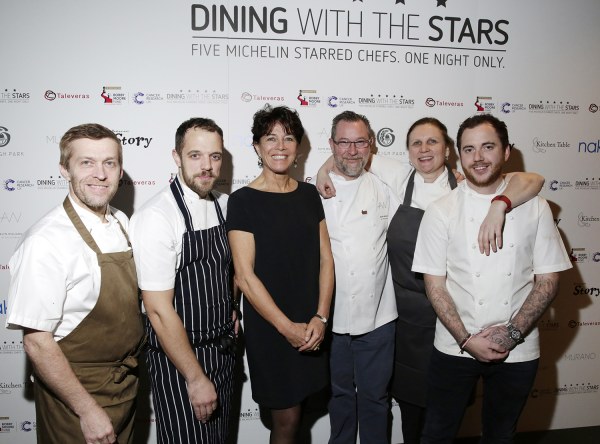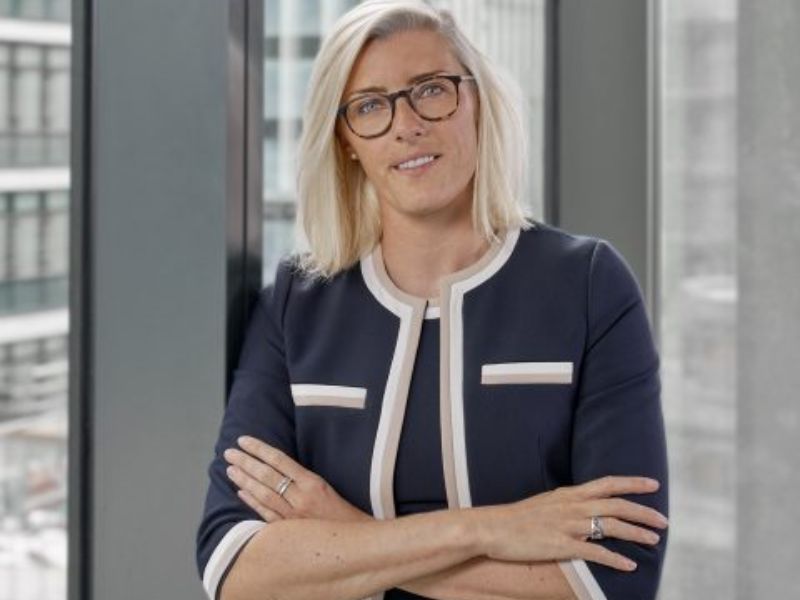
Stephanie Moore MBE is founder of the Bobby Moore Fund, named after her late husband and footballing legend. Since losing Bobby to bowel cancer in 1993, Stephanie has campaigned tirelessly to raise awareness of the disease.
Tell us a bit about yourself and your background before the Bobby Moore Fund?
I started work for BOAC straight after university and worked for what later became British Airways until I left full time employment a few years ago to concentrate completely on the Bobby Moore Fund – the charity I set up in my late husband’s memory. Overseeing a charity that raises on average in excess of £1million every year, combined with continually travelling around the world in charge of a Boeing 747 was not conducive to good health in the long term and so finally I had to give one or the other up. As I felt that the charity was making a real difference I decided to leave British Airways.
What were the greatest challenges you faced when you first started the Bobby Moore Fund and how did you deal with them?
The greatest challenge was starting a charity from scratch with absolutely zero experience of the charity world whilst at the same time dealing with all that comes with being newly widowed and trying to rebuild my life. I worked entirely alone for the first five years, hand writing letters from my dining room table. I didn’t even own a computer back then.
During challenging times, how did you keep yourself motivated?
It’s mainly anger that kept me motivated – knowing that bowel cancer was and is such a treatable disease but because it is a taboo subject people were dying unnecessarily. This, plus the knowledge that doctors back then couldn’t differentiate between bowel cancer symptoms and irritable bowel syndrome, leading to thousands and thousands of unnecessary deaths. Of course my husband was just one and while he was just one, like everyone else who has lost their soul mate in life, it left me utterly devastated. I made it my mission not to criticise GP’s but to raise awareness amongst GPs and the general public about the high-risk early signs and symptoms of the disease. Early diagnosis is essential.
Tell us a little bit about your role as Founder. What is a typical day for you?
Every day is different and that’s what I like most about it. I have a small, enthusiastic and very effective team working at Cancer Research UK’s head office and my days consist of meetings with them, meeting our various partners and sponsors, spending time scoping out potential future support and visiting the various laboratories or events venues. I spend a lot of time at Wembley Football Stadium at the moment because we have been chosen as the FA’s charity partner up until the next World Cup in Russia in 2018. I obviously attend our own events and external events that people are organising for the Bobby Moore Fund. Most days I speak to or meet with people who have bowel cancer, reassuring them, listening to them, or giving advice.
What is the most rewarding aspect of your role?
There are many but two things mainly. Seeing the amazing progress made since Bobby died in the way bowel cancer is now diagnosed and treated. Advances in surgery, personalised medicine and the introduction of the UK’s first national bowel cancer screening programme has seen thousands and thousands more people survive this disease who would have died previously. An extra special day is when I receive a letter or a phone call thanking the Bobby Moore Fund for saving someone’s life. That is the most rewarding and grounding day.
How important is networking in your role?
It is key and it is a skill that for me was not implicit. It’s about striking the right balance between being enthusiastic, passionate and engaging without being offensively ardent. I have had to learn how to do it effectively and I am still learning. We simply would not be able to raise the enormous funds we need to further research without courting and constantly attracting companies, celebrities and individuals who can further our aims with their support. Globally respected research to put it bluntly cannot be done on the cheap. It is incredibly time consuming and expensive.
Have you ever had a mentor or anyone who has helped you become the person you are today? If yes, how has this benefitted you?
There have been several but the most important person in my life has undoubtedly been Bobby. He wasn’t just a great footballer but an inspirational and kind man. I respected him enormously. I learnt from him and never more so than when he faced the biggest adversity of his life, when he had so much still to live for, but received a diagnosis of terminal cancer at just 50. He continued working right up until three days before he died. He remained focused, strong, reliable, uncomplaining, principled and good fun. He refused to let his diagnosis be the focus of his life, he refused to apportion blame for being unforgivably misdiagnosed for four years but continued to live every day to the full with those he loved. We travelled, we partied and we simply enjoyed life just being together. When things seem insurmountable I just follow his code of ethics. It has always served me well.
How would you encourage more women to enter into the charity sector?
By telling them how rewarding I have found my experience to be. It has enabled me to grow in confidence and do things I never would have dreamed I was capable of. It has enabled me to meet some truly inspirational people. New challenges, new experiences, new highs and new lows. It’s an exciting roller coaster in many ways. Against all odds our tiny charity has achieved and continues to strive to achieve, something that I am so very proud of. I sincerely believe that if everyone did something, no matter how seemingly small, it would make a huge amount of difference to those who need help in this world. Be brave. If I can do it, anyone can.
What are you most proud of since beginning your work with Cancer Research UK in 1993?
Apart from knowing that we have raised over £23.5 million since the outset and seeing the incredible progress we are helping our scientists to make, it is the everyday victories and challenges we face in order to grow our events portfolio in an ever more competitive market. Our exciting and innovative “London Celebrity Sports Quiz” is now in its 20th year and outrivals all others. Our glamorously elegant black tie flagship event “Dining With The Stars” is a truly magical evening. The latter, where we invite five different Michelin starred chefs to give up their time to each cook a course for our 200 guests in a prestigious London location is a wonderful experience. Fine dining was not an area where I had contacts or expertise and yet we have seen this extravagant culinary venture grow into a successful fundraiser that people are eager to enjoy and support. After all the hard work and disappointments such successes gives the team at Cancer Research UK and me a real sense of achievement and a buzz like you wouldn’t believe.
What does the future hold for the Bobby Moore Fund?
Bobby remains an icon in the world of English football and together with the fact that bowel cancer kills 44 people in this country every day and is the second highest killing cancer, means that we still have an important role to play in raising awareness and funds for much-needed research in his memory. Together with his legacy, our supporters and our scientists, we will beat bowel cancer sooner.
Join Stephanie, the Bobby Moore Fund and Cancer Research UK at their Dining With The Stars event on 20th February 2017. Click here to find out more about getting involved.








